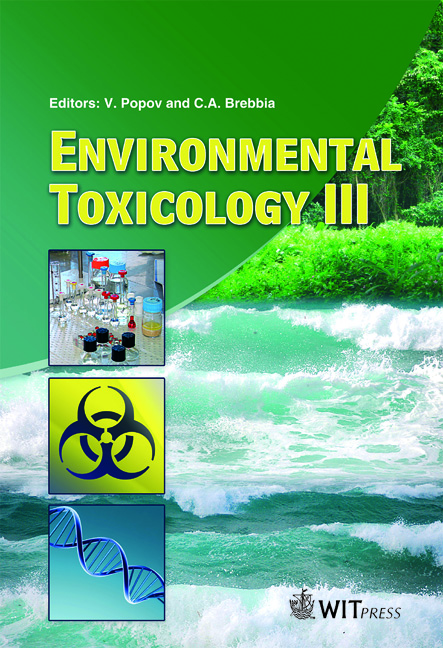Controlling Groundwater Pollution From Petroleum Products Leaks
Price
Free (open access)
Transaction
Volume
132
Pages
9
Page Range
91 - 99
Published
2010
Size
274 kb
Paper DOI
10.2495/ETOX100091
Copyright
WIT Press
Author(s)
M. S. Al-Suwaiyan
Abstract
Groundwater is the main source of potable water in many communities. This source is susceptible to pollution by toxic organic compounds resulting from the accidental release of petroleum products. A petroleum product like gasoline is a mixture of many organic compounds that are toxic at different degrees to humans. These various compounds have different characteristics that influence the spread and distribution of plumes of the various dissolved toxins. A compositional model utilizing properties of organics and soil was developed and used to study the concentration of benzene, toluene and xylene (BTX) in leachate from a hypothetical site contaminated by BTX. Modeling indicated the high and variable concentration of contaminants in leachate and its action as a continuous source of groundwater pollution. In a recent study, the status of underground fuel storage tanks in eastern Saudi Arabia and the potential for petroleum leaks was evaluated indicating the high potential for aquifer pollution. As a result of such discussion, it is concluded that more effort should be directed to promote leak prevention through developing proper design regulations and installation guidelines for new and existing service stations. Keywords: groundwater pollution, petroleum products, dissolved contaminants, modelling contaminant transport. 1 Introduction Water covers about 73% of our planet with a huge volume of 1.4 billion cubic kilometers most of which is saline. According to the water encyclopedia [1], only about 3-4% of the total water is fresh. Most of the freshwater exist as ice in the polar region leaving about 9 million cubic kilometers of fresh water existing
Keywords
groundwater pollution, petroleum products, dissolved contaminants, modelling contaminant transport





